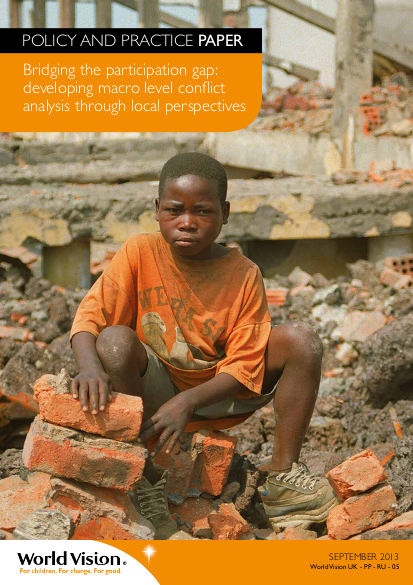
This paper draws upon over ten years of experience with World Vision’s macro-level, participatory conflict analysis methodology, ‘making Sense of turbulent Contexts’, complemented with lessons from other available methodologies and existing literature. the paper argues that participatory approaches can: • Improve the overall quality of conflict analysis by including a broad range of actors in the analysis and shedding new light on ‘standard’ narratives about a conflict. • Improve implementation and sustainability of recommendations by ensuring that findings are developed and owned by local people, making recommendations more realistic, sustained and likely to be implemented. • Improve inter-agency co-ordination and collective impact by bringing agencies together to develop common understanding of conflict causes and shared action plans. • Contribute towards peacebuilding objectives by bringing groups together to help build collaboration across conflict fault-lines and promote inclusion. It can help participants to understand their own roles in a context, empowering them to become active change agents.